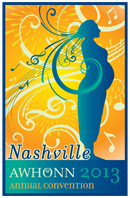C
"Yes, U Can!" - Professional Development Program
Title: "Yes, U Can!" - Professional Development Program
- Review the recommendations related to nursing education from The Future of Nursing: Leading Change, Advancing Practice, 2011.
- Discuss three barriers to returning to formal education for baccalaureate completion or masters preparation.
- Describe one components of the "Yes, You Can!" program that could be replicated at your facility.
As a Magnet-designated facility, we encourage our nurses to consider completing their baccalaureate degree, obtaining a specialty certification or returning to school to obtain a masters or doctoral degree. Responses from these nurses often include: “I don’t even know where to start!”, “I think I’m too old?”, and “It’s too expensive, I can’t afford it.” The Institute of Medicine and experts like Dr. Patricia Benner have long advocated the baccalaureate degree be the minimum for entry into nursing practice. Many existing nurses who completed a diploma or associate degree program are overwhelmed by the idea of returning to school.
Proposed change:
An innovative program was developed to offer counseling/referral for nurses interested in educational opportunities and professional growth. Following the pilot this program was opened to nurses at all sites/locations within the St. Luke’s Healthcare System. Components of this program include: referral into the program, initial questionnaire, preparation of materials, confidential 1:1 meeting with participant and a follow up questionnaire.
Overwhelming response to the program has resulted in expansion to include the two additional groups. The first group includes those staff members who are not clinical but desire a clinical career. The second group includes those staff members who are not clinical and do not want a clinical position but do desire professional growth. This resulted in a significant increase in volume and an opportunity to partner with Organizational Development.
Implementation, outcomes and evaluation:
Before the program was piloted in the fall of 2009, much care was given to creation of the forms, data tracking, and an electronic data base of various nursing programs which identifies the admission process, prerequisites, application deadline, contact information, and costs associated with each program. Additional program information was prepared including information on tuition reimbursement, certification prepayment, and scholarships offered by the health system. The “Yes, You Can!” program has provided services to more than 280 participants in 3 years.
Implications for nursing practice:
Assisting interested and motivated nurses in navigating the process towards a specialty certification and/or furthering their education is of benefit to all. The individual nurse benefits personally and perhaps financially from furthering his/her education. The employer benefits from the added knowledge and new ways of thinking. The patients benefit from the public demonstration of excellence in that specialty or the new baccalaureate or masters prepared nurses with their ability to integrate and synthesize.
Keywords: certification, baccalaureate completion, advanced nursing degrees, tuition reimbursement, IOM 2010, healthcare reform

